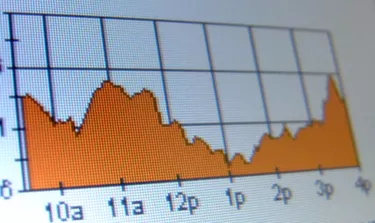
If you are looking to invest in stocks, you should be aware of what they are and how they are bought and sold. Stocks represent proportional shares of ownership in the company that you are interested in investing. For example, if you buy 10,000 shares of stock in a company that has 100,000 shares issued, you own 10 percent of the company. Stocks are traded on public exchanges which bring buyers and sellers together. But before you start making trades, consider the advantages and disadvantages of investing in shares.
Consider also: The Role of the Stock Exchange in the Economy
Video of the Day
Video of the Day
Advantages of Investing in Stocks

When looking at the pros and cons of investing in stocks, an upside is that you have the potential of making more money than you would with other types of investments, such as fixed rate bonds and certificates of deposit, because stocks participate directly in the growth of the economy and over the long run have historically outperformed any other form of investment.
Furthermore, any potential losses are limited to the amount of your initial investment, unlike other forms of investment that are leveraged, such as real estate where you could owe more than your original down payment. In this regard, shareholders have limited liability for the actions of the company's management because shareholders are passive investors that only share in the capital gains and dividends of the company.
Stocks also offer a great deal of liquidity because they can be sold at their fair market value and converted to cash at any time on the stock exchange. Lastly, stocks are very tax-efficient because capital gains from the sale of stocks can be offset by capital losses that bring down the amount of income subject to taxation.
Consider also: 6 Characteristics of the Stock Market
Disadvantages of Stocks for Investors

Before you invest in stocks, you should be aware that they involve some risk because the value of the shares of any one company can radically rise or fall depending upon the financial management of that company and the economy in general. Furthermore, the right type of stocks may be hard to find because each stock purchased or sold must be analyzed and evaluated based upon the limited amount of information available through third party sources.
This makes diversification of your investment among many different types of stocks difficult due to the financial resources required. Also, one of the disadvantages of stocks is that the timing of when to get in or out of stocks is hard to predict and should not be attempted by people nearing retirement age.
Using Stock Market Exchanges

Now that you understand the advantages and disadvantages of investing in shares, you can look for places to purchase them. When you want to buy or sell shares of stock, you must place an order through your broker dealer for a specific amount of shares at a certain price on the stock exchange.
Stock exchanges, such as the New York Stock Exchange (NYSE) or the National Association of Securities Dealers Automated Quotations (NASDAQ) provide liquidity to the market by offering to buy or sell shares of a specific company to the public at a definite price based upon demand.
Consider also: How to Buy Stock Online Immediately